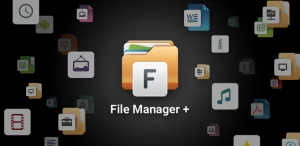File Manager APK

In the ever-expanding world of smartphones and digital devices, managing files efficiently has become an essential aspect of everyday life. File Manager APKs (Android Package Kits) play a crucial role in this domain, offering users a centralized tool to organize, navigate, and manipulate their digital content. From simplifying file transfers to enhancing storage management, these applications have evolved significantly to meet the diverse needs of users. This article explores the evolution, features, and practical applications of File Manager APKs, highlighting their importance in modern digital lifestyles.
Evolution of File Manager APKs
File Manager applications have evolved alongside the proliferation of smartphones and the increasing complexity of digital content. Initially, mobile operating systems lacked robust file management capabilities, prompting developers to create third-party solutions. Early iterations focused on basic functionalities such as file browsing, copying, and renaming.
As smartphones became more powerful and capable of handling a broader range of file types, File Manager APKs expanded their features. Today, these applications offer comprehensive tools for managing documents, multimedia files, apps, and cloud storage services. They integrate with various file formats and facilitate seamless interaction between different devices and platforms.
Features of Modern File Manager APKs
1. File Organization and Navigation
Modern File Manager APKs provide intuitive interfaces for organizing files into folders, subfolders, and categories. Users can easily navigate through directories, search for specific files, and sort content based on criteria such as name, date, or size. This organizational structure simplifies file access and enhances productivity.
2. File Transfer and Sharing
One of the primary functionalities of File Manager APKs is facilitating file transfers between devices. These applications support various transfer methods, including Bluetooth, Wi-Fi Direct, and USB connections. Advanced features may include FTP (File Transfer Protocol) and SMB (Server Message Block) support, enabling seamless sharing of files across networks and with remote devices.
3. Cloud Storage Integration
To accommodate the shift towards cloud computing, many File Manager APKs integrate with popular cloud storage services such as Google Drive, Dropbox, and OneDrive. This integration allows users to manage files stored in the cloud directly from their mobile devices, enabling effortless synchronization and backup of digital content.
4. Storage Analysis and Cleanup
Managing device storage efficiently is crucial for maintaining optimal performance. File Manager APKs offer tools for analyzing storage usage, identifying large files or unused apps, and clearing cache data. These features help users reclaim storage space and improve device responsiveness.
5. Built-in Media Players and Viewers
Some File Manager APKs include built-in media players and document viewers, eliminating the need to install separate applications for viewing photos, videos, PDFs, and other file types. This integration enhances convenience by allowing users to preview and play multimedia content directly within the file manager interface.
6. Security and Privacy
Security features are increasingly vital in File Manager APKs, especially concerning file encryption, password protection, and secure file deletion. These applications help safeguard sensitive data from unauthorized access and ensure privacy compliance in handling personal or confidential information.
Practical Applications of File Manager APKs
1. Personal File Management
For individual users, File Manager APKs serve as comprehensive tools for organizing personal files, photos, videos, and documents. They provide a user-friendly interface for accessing and managing digital content stored locally or in cloud services.
2. Business and Productivity
In professional settings, File Manager APKs facilitate document management, enabling employees to access work-related files, presentations, and spreadsheets on the go. Integration with cloud storage enhances collaboration by allowing real-time file sharing and synchronization among team members.
3. Multimedia Organization
Media enthusiasts benefit from File Manager APKs’ ability to organize and manage large collections of photos, music, and videos. These applications streamline media playback, file transfer to external devices, and synchronization with cloud-based storage solutions.
4. Device Maintenance
File Manager APKs contribute to device maintenance by offering tools for cleaning up storage, managing app installations, and monitoring system resources. Regular maintenance tasks help prolong device lifespan and optimize performance.
Conclusion
In conclusion, File Manager APKs have evolved into indispensable tools for managing digital content across Android devices. From simplifying file organization and facilitating seamless file transfers to integrating with cloud storage and enhancing device security, these applications cater to diverse user needs in the digital age. As technology continues to advance, File Manager APKs will likely evolve further, incorporating new features and capabilities to meet the demands of an increasingly interconnected and data-driven world. Embracing these tools not only enhances personal productivity and organization but also underscores the importance of efficient file management in today’s mobile-centric lifestyle.

Take a comment
Recommended for you
Psiphon Pro Vodafone
APPsGame Booster 4x Faster Pro
APPsShizuku hxh
APPs4K Video Downloader Youtube
APPsHDHub4u APK
APPsYTV Player Pro APK
APPs